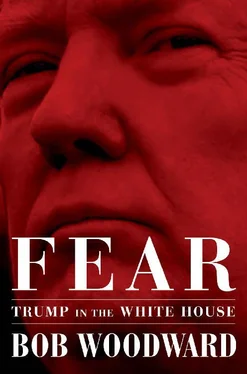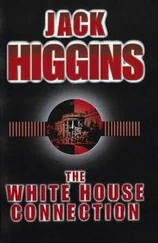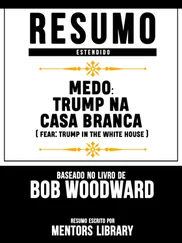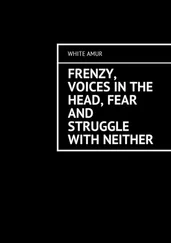Bob Woodward - Fear - Trump in the White House
Здесь есть возможность читать онлайн «Bob Woodward - Fear - Trump in the White House» весь текст электронной книги совершенно бесплатно (целиком полную версию без сокращений). В некоторых случаях можно слушать аудио, скачать через торрент в формате fb2 и присутствует краткое содержание. Город: New York, Год выпуска: 2018, ISBN: 2018, Издательство: Simon & Schuster, Жанр: Публицистика, Политика, на английском языке. Описание произведения, (предисловие) а так же отзывы посетителей доступны на портале библиотеки ЛибКат.
- Название:Fear: Trump in the White House
- Автор:
- Издательство:Simon & Schuster
- Жанр:
- Год:2018
- Город:New York
- ISBN:978-1-5011-7551-0
- Рейтинг книги:3 / 5. Голосов: 1
-
Избранное:Добавить в избранное
- Отзывы:
-
Ваша оценка:
- 60
- 1
- 2
- 3
- 4
- 5
Fear: Trump in the White House: краткое содержание, описание и аннотация
Предлагаем к чтению аннотацию, описание, краткое содержание или предисловие (зависит от того, что написал сам автор книги «Fear: Trump in the White House»). Если вы не нашли необходимую информацию о книге — напишите в комментариях, мы постараемся отыскать её.
Fear: Trump in the White House — читать онлайн бесплатно полную книгу (весь текст) целиком
Ниже представлен текст книги, разбитый по страницам. Система сохранения места последней прочитанной страницы, позволяет с удобством читать онлайн бесплатно книгу «Fear: Trump in the White House», без необходимости каждый раз заново искать на чём Вы остановились. Поставьте закладку, и сможете в любой момент перейти на страницу, на которой закончили чтение.
Интервал:
Закладка:
Bannon gave an extended brief on China and its successful efforts to take jobs and money from the United States. He was obsessed with the threat.
“What do you think?” Bossie later asked Bannon.
“I’m pretty impressed with the guy,” Bannon said. As for running for president, “Zero chance. First off, those two action items. The fucker will not write one check. He’s not a guy who writes checks. He signs the back of checks” when they come in as payments to him. “It was good you said that because he’ll never write a check.”
“What about the policy book?”
“He’ll never do a policy book. Give me a fucking break. First off, nobody will buy it. It was a waste of time except for the fact that it was insanely entertaining.”
Bossie said he was trying to prepare Trump if he ever did decide to run. Trump had a unique asset: He was totally removed from the political process.
As they walked on, Bossie found himself going through a mental exercise, one that six years later most Americans would go through. He’ll never run. He’ll never file. He’ll never announce. He’ll never file his financial disclosure statement. Right? He’ll never do any of those things. He’ll never win.
“You think he’s going to run?” Bossie finally asked Bannon.
“Not a chance. Zero chance,” Bannon repeated. “Less than zero. Look at the fucking life he’s got, dude. Come on. He’s not going to do this. Get his face ripped off.”
CHAPTER
2

It is almost certain that if events had not unfolded in the following unlikely, haphazard, careless way, the world would be vastly different today. Donald Trump accepted the Republican nomination on July 21, 2016, and his quest for the presidency took a significant turn early the morning of Saturday, August 13, 2016.
Steve Bannon, now the chief of the right-wing Breitbart News operation, sat on a bench in Bryant Park in New York City and huddled with his newspapers, his Saturday ritual. He first thumbed through the Financial Times and then moved to The New York Times .
“The Failing Inside Mission to Tame Trump’s Tongue,” read the headline on the Times front page. The presidential election was three months away.
“Oh, my God,” Bannon thought.
The first act of the Bannon drama is his appearance—the old military field jacket over multiple tennis polo shirts. The second act is his demeanor—aggressive, certain and loud.
The reporters of the Times story said they had 20 Republican unnamed sources close to Trump or in communication with his campaign. The article painted Trump as bewildered, exhausted, sullen, gaffe-prone and in trouble with donors. He was in precarious condition in Florida, Ohio, Pennsylvania and North Carolina, battleground states that would decide the election. It was an ugly portrait, and Bannon knew it was all true. He calculated that Trump could lose to Democratic nominee Hillary Clinton by perhaps as many as 20 points, certainly double digits.
Trump was a media spectacle for sure, but he still had no operation beyond what the Republican National Committee had supplied. Bannon knew the Trump campaign was a few people in a room—a speechwriter, and an advance team of about six people that scheduled rallies in the cheapest venues, often old, washed-out sports or hockey arenas around the country.
Despite that, Trump had won the Republican nomination over 16 others and was a big, profane, subversive presence, out front seizing the nation’s attention.
Bannon, now 63 years old and a Harvard Business School graduate with fervently nationalistic, America-first views, called Rebekah Mercer.
Mercer and her family were one of the biggest and most controversial sources of campaign money in the Republican Party and money was the engine of American politics, especially in the Republican Party. The Mercers were a bit on the fringe but their money bought them a place at the table. They also had an ownership stake in Breitbart.
“This is bad because we’re going to get blamed for this,” Bannon told Mercer. Breitbart had stood by Trump in his darker hours. “This is going to be the end of Breitbart.”
“Why don’t you step in?” Rebekah said.
“I’ve never run a campaign in my life,” Bannon replied. Not even close. The idea was preposterous.
“This guy Manafort’s a disaster,” she said, referring to the Trump campaign manager, Paul Manafort. “Nobody’s running the campaign now. Trump listens to you. He’s always looking for adult supervision.”
“Look,” Bannon said, “I’ll do it in a second. But why would he do that?”
“He’s been an outsider the entire time,” she said, and mentioned the New York Times article. “This thing’s in panic mode.” In short, Trump might hire Bannon because he was desperate.
The Mercers contacted Trump, who was going to be at the East Hampton, Long Island, home of Woody Johnson, the New York Jets owner, for a fundraiser. Normally the Mercers wrote the checks and said they didn’t even need to see the candidate. This time they wanted 10 minutes with Trump.
In a small sunroom, Rebekah, a tall redhead, let loose. Her father, Bob Mercer, a high-IQ mathematician, barely talked. He was one of the brains behind a fabulously successful hedge fund, Renaissance Technologies, that managed $50 billion.
“Manafort has got to go,” she told Trump. She said it was chaos.
“What do you recommend?” Trump asked.
“Steve Bannon will come in,” she said.
“He’ll never do it.”
He “definitely” would, she answered.
Bannon reached Trump that night.
“This thing is embarrassing in the paper,” Bannon said, referring to the New York Times piece. “You’re better than this. We can win this. We should be winning this. It’s Hillary Clinton, for God’s sake.”
Trump went off on Manafort. “He’s a stiff,” he said. He can’t do TV effectively.
“Let’s meet tomorrow and put this thing together. We can do this,” Bannon gushed. “But let’s keep it totally quiet.”
Trump agreed to meet the next morning, Sunday.
Another worried political figure that day was Reince Priebus, the 44-year-old chairman of the Republican National Committee, and a Wisconsin lawyer. Priebus had been Mr. Outreach and Mr. Networker in his five years as chairman. His cheery demeanor masked an empire builder. Priebus made the party’s finance decisions, hired the field staff of 6,500 paid workers, appeared on TV regularly and had his own communications operation. He was in an awkward position.
Privately, Priebus viewed the month of August as a catastrophe. “A constant heat lamp that wouldn’t go away.” And the person responsible was candidate Trump.
Priebus had tried to navigate the campaign from the beginning. When Trump called Mexicans “rapists” in the speech announcing his candidacy on June 16, 2015, Priebus called him and said, “You can’t talk like that. We’ve been working really hard to win over Hispanics.”
Trump would not tone it down, and he attacked anyone who attacked him. No national party chairman had ever dealt with a headache quite like Trump.
Senator Mitch McConnell, the wily Republican majority leader, had called Priebus confidentially. His message: Forget Trump, divert Republican money to us, the Senate candidates, and shut off the money faucet to Donald Trump.
But Priebus wanted to preserve a relationship with Trump, and he decided to plant himself firmly in the middle between Trump and McConnell. It was tactically sound, he thought. Survival for the party and him. He had told Trump, “I’m with you 100 percent. I love you. I’m going to keep working for you. But I have to protect the party. I have a responsibility that’s different than just you.”
Читать дальшеИнтервал:
Закладка:
Похожие книги на «Fear: Trump in the White House»
Представляем Вашему вниманию похожие книги на «Fear: Trump in the White House» списком для выбора. Мы отобрали схожую по названию и смыслу литературу в надежде предоставить читателям больше вариантов отыскать новые, интересные, ещё непрочитанные произведения.
Обсуждение, отзывы о книге «Fear: Trump in the White House» и просто собственные мнения читателей. Оставьте ваши комментарии, напишите, что Вы думаете о произведении, его смысле или главных героях. Укажите что конкретно понравилось, а что нет, и почему Вы так считаете.












